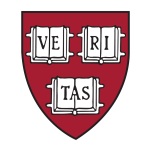GIIM hosted the third Women in Math and Statistics Conference at the Harvard Science Center (1 Oxford Street) on April 7th, 2018.
Check the main WIMS page for updates about this year’s conference!
About
WIMS hopes to connect women, gender minorities, and allies interested in math and statistics in the Boston area. Our mission is to provide you with the opportunity to connect with leading mathematicians working in both academia and industry and to interact with your peers. All genders welcome!
Schedule
| Registration and Breakfast | 9:30 am |
| Welcome and Keynote #1 Dr. Emily Riehl |
10:00 am |
| Gender Gap Panel | 11:10 am |
| Lunch | 12:30 pm |
| Breakout Sessions | 1:10 pm |
| Keynote #2 Dr. Melody Chan |
2:15 pm |
| Careers in Math Panel | 3:30 pm |
| Closing Remarks | 4:50 pm |
Keynote Speakers
Keynote #1: Emily Riehl
 |
Dr. Emily Riehl is an assistant professor of mathematics at Johns Hopkins University, working on topics in category theory related to homotopy theory, such as infinity-categories, model structures, Reedy categories, and homotopy type theory. Dr. Riehl was an undergraduate at Harvard University, completed her Ph.D. at the University of Chicago in 2011, and was a Benjamin Pierce and NSF postdoctoral fellow at Harvard University. She has published over twenty papers and written two books: Category Theory in Context and Categorical Homotopy Theory.
In addition to her impressive research, Dr. Riehl is active in promoting access to the world of mathematics. She is a host for the mathematics blog “n-Category Café” and founder of the Kan Extension Seminar. She has given interviews for the Association for Women in Mathematics and the radio program Science Friday and has been featured in the Girls’ Angle Bulletin. She has given countless talks and lectures, including at the Women in Topology workshop at MSRI, the American Mathematical Society, and the Association for Women in Mathematics. She is also a co-founder of Spectra: the Association for LGBT Mathematicians and has spoken about the intersection of queerness and mathematics. Outside of mathematics, Dr. Riehl was a bass guitarist for the band Unstraight and has been on the USA Australian Rules Football National team, USA Freedom, since 2010. |
Keynote #2: Melody Chan
 |
Dr. Melody Chan is a mathematician working in the fields of tropical geometry and combinatorial algebraic geometry. A common thread in her research is using degeneration techniques in algebraic geometry to study curves and their moduli spaces. She received her PhD from the University of California Berkeley in 2012 and was an NSF Postdoctoral Fellow at Harvard from 2012 to 2015 before beginning her current position as an assistant professor at Brown University. Chan’s research has been supported by grants from the NSF, NSA, and by the Henry Merritt Wriston Fellowship at Brown University. |
Panelists include:
 |
Emma K. T. Benn, DrPH, MPH is an Assistant Professor in the Department of Population Health Science and Policy and Director of Academic Programs for the Center for Biostatistics at the Icahn School of Medicine at Mount Sinai (ISMMS). Dr. Benn is also Co-Director of the MS in Biostatistics Program. Dr. Benn has contributed to research areas including: health disparities, epilepsy, traumatic brain injury, HPV, COPD, stroke, postpartum depression, bladder cancer, skin bleaching, and HIV.
Dr. Benn is devoted to increasing the representation of underserved students in Biostatistics, and to faculty promotion and retention of racial/ethnic minorities in academic medicine. Dr. Benn is the Co-Chair of the Fostering Diversity in Biostatistics Workshop for the Eastern North American Region (ENAR) of the International Biometric Society and a mentor for the Joint Statistical Meetings Diversity in Biostatistics Mentoring Program. She is a member of the ENAR Regional Advisory Board and was recently invited to serve on the American Statistical Association’s Task Force on Sexual Harassment and Assault. Dr. Benn is originally from Bryn Mawr, PA and conducted her undergraduate studies in Chemistry and Spanish at Swarthmore College. She subsequently received her Master of Public Health in Sociomedical Sciences and Doctor of Public Health in Biostatistics from Columbia University’s Mailman School of Public Health. She currently lives with her wife in Brooklyn, NY. |
 |
Catherine Cannizzo is a fifth year mathematics PhD at UC Berkeley. Prior to that she did her undergraduate degree and Part III in math at the University of Cambridge. Her current interests include homological mirror symmetry, a conjecture that manifolds come in pairs such that the complex geometry on one is related to the symplectic geometry on the other. |
 |
Dr. Pamela Harris is a Mexican-American Assistant Professor in the department of Mathematics and Statistics at Williams College. She received her B.S. from Marquette University, and M.S. and Ph.D. in mathematics from the University of Wisconsin-Milwaukee. Her research interests are in algebra and combinatorics, particularly as these subjects relate to the representation theory of Lie algebras. Her recent research on vector partition functions and projects in graph theory has been supported through awards from the National Science Foundation and the Center for Undergraduate Research in Mathematics. Harris co-organizes research symposia and professional development sessions for the national conference of the Society for the Advancement of Chicanos/Hispanics and Native Americans in Science, was a Mathematical Association of America’s Project NExT (New Experiences in Teaching) Fellow from 2012-2013, and is an editor of the e-Mentoring Network blog of the American Mathematical Society. In 2016, she co-founded http://www.Lathisms.org an online platform that features prominently the extent of the research and mentoring contributions of Latin@s and Hispanics in the Mathematical Sciences. She is also the lead editor for the Special Issue on Motherhood and Mathematics of the Journal of Humanistic Mathematics. |
 |
Sachi Hashimoto is a mathematics PhD student at Boston University. Her research interests lie in algebraic geometry and number theory. In particular, she is interested explicit methods in number theory and finding rational points on varieties. She received a BA in mathematics from the University of Chicago in 2014. For many years, she has been involved in math education for middle and high school students: most recently as a founding faculty member at Proof School and as an instructor at Canada/USA Mathcamp. |
 |
Dr. Diana Hubbard is a Postdoctoral Assistant Professor at the University of Michigan whose research is partially supported by the NSF. Her work is in low-dimensional topology and knot theory. She received her Ph.D. from Boston College in 2016 under the advisement of Professor J. Elisenda Grigsby, and attended the University of Chicago as an undergraduate. She particularly enjoys mathematics that she can visualize and draw. |
 |
Dr. Autumn Kent is an associate professor of mathematics at the University of Wisconsin – Madison. She studies hyperbolic geometry in low dimensions, and enjoys drawing, taking photographs, and writing poetry. She is an advocate and mentor for members of the LGBTQ community in mathematics, and, being one of few trans women in tenured positions in mathematics, she keeps this responsibility close to her heart. |
 |
Dr. Katherine St. John is a professor at Hunter College of the City University of New York and a research associate at the American Museum of Natural History (AMNH). She earned her doctoral degree from UCLA, did postdoctoral work at the University of Pennsylvania and the University of Texas at Austin, and has been a visiting researcher at the Centre de Recerca Matematica (Barcelona), University of Canterbury (New Zealand), University of California, Davis, and the Isaac Newton Institute (Cambridge, England). Her research interests are in the intersection of mathematics and computer science, in particular to problems with applications to biology. She is passionate about getting more students involved in research early in their careers. |
 |
Dr. Olivia Walch is a post-doc at the University of Michigan. She received her Ph.D in Applied Mathematics in 2016. She is the developer of several apps including Entrain, which recommends schedules of light and dark to help travelers cross time zones faster, and Squigglish, an app that animates drawings using Fourier series. In 2017, she founded Arcascope, a company specializing in using mathematical modeling to predict circadian rhythms. She’s also a cartoonist, and her work has been featured in the Washington Post and on The Nib. |
Panel Information
Breakout Sessions
Sponsors


